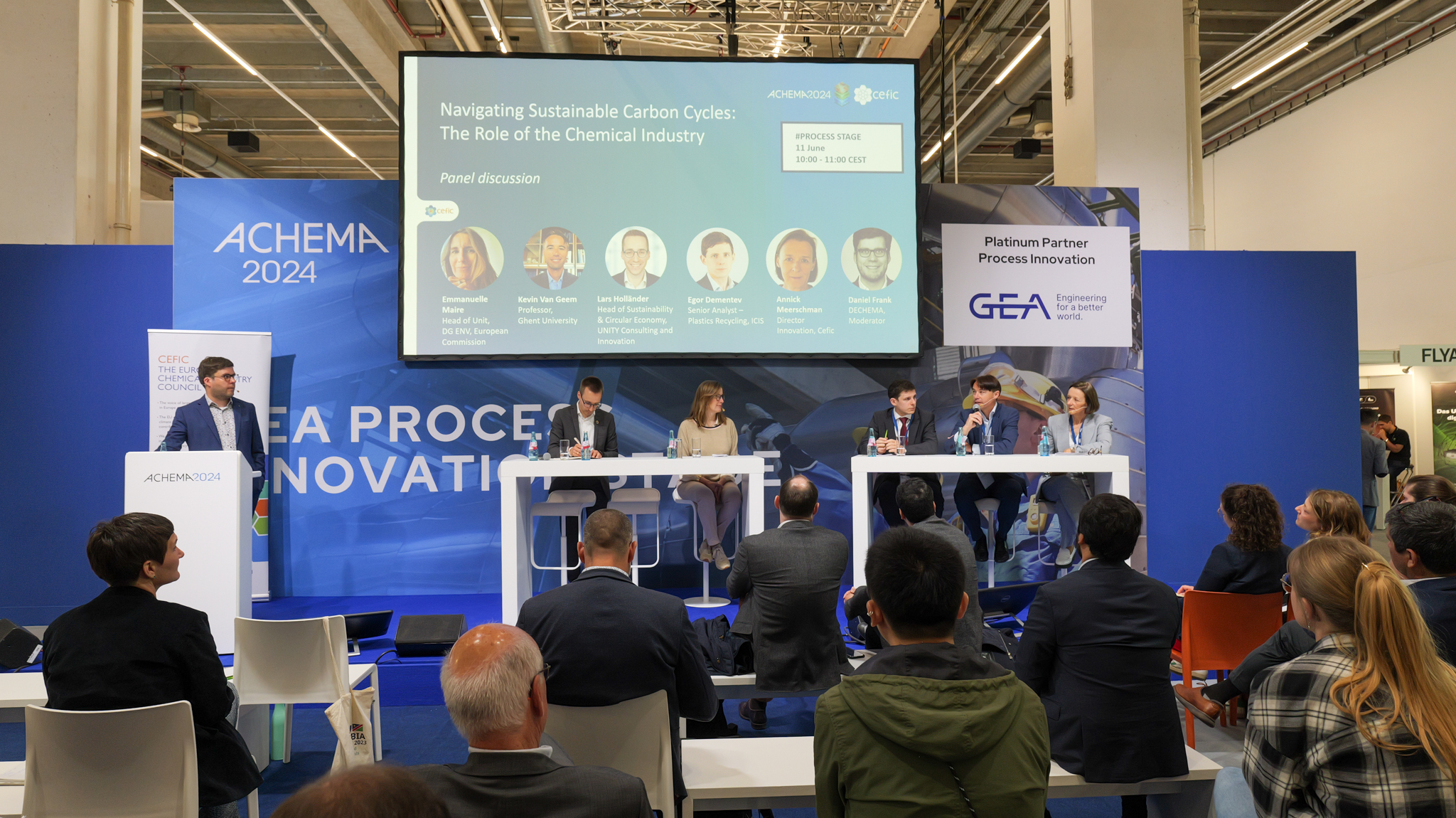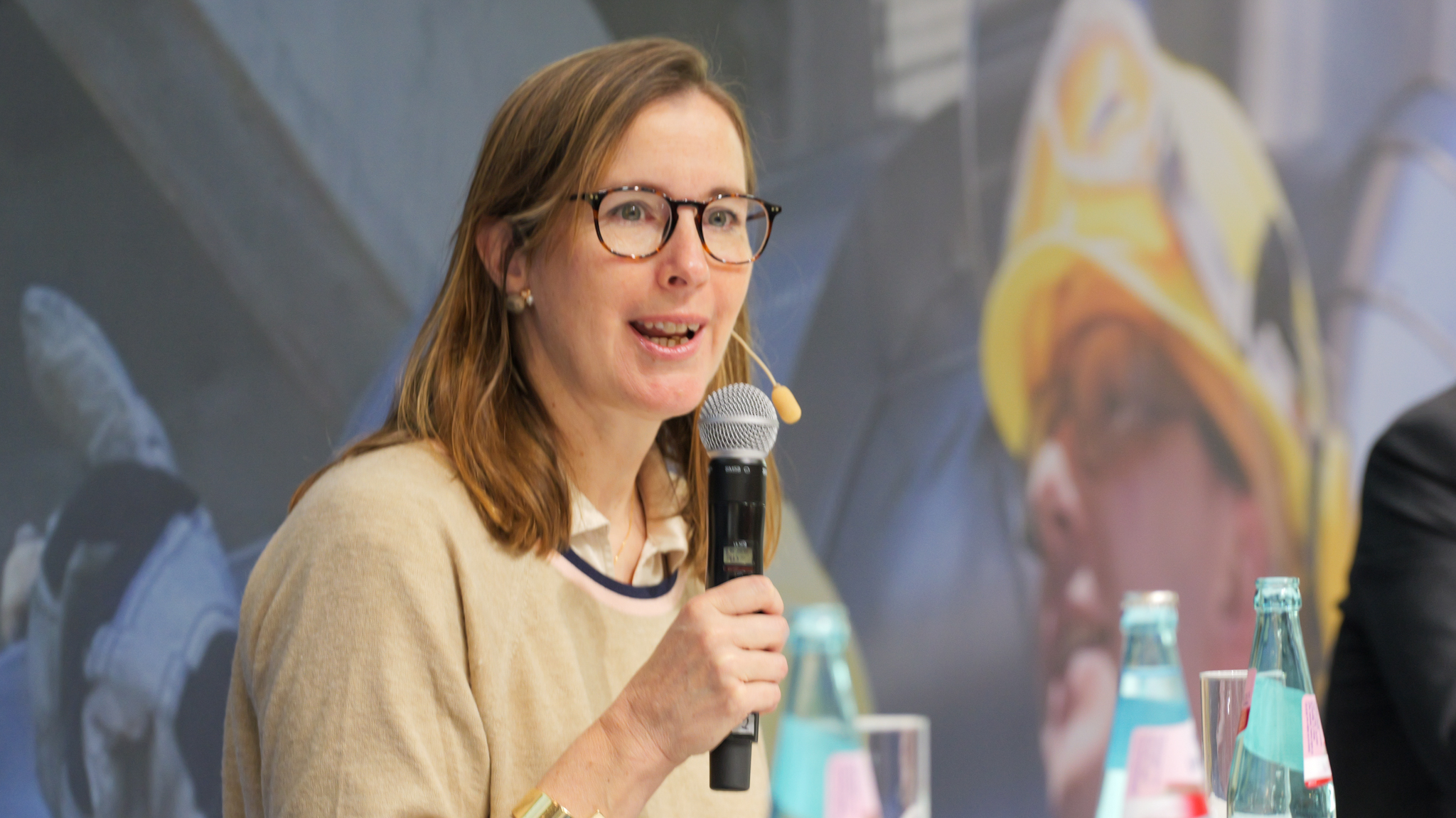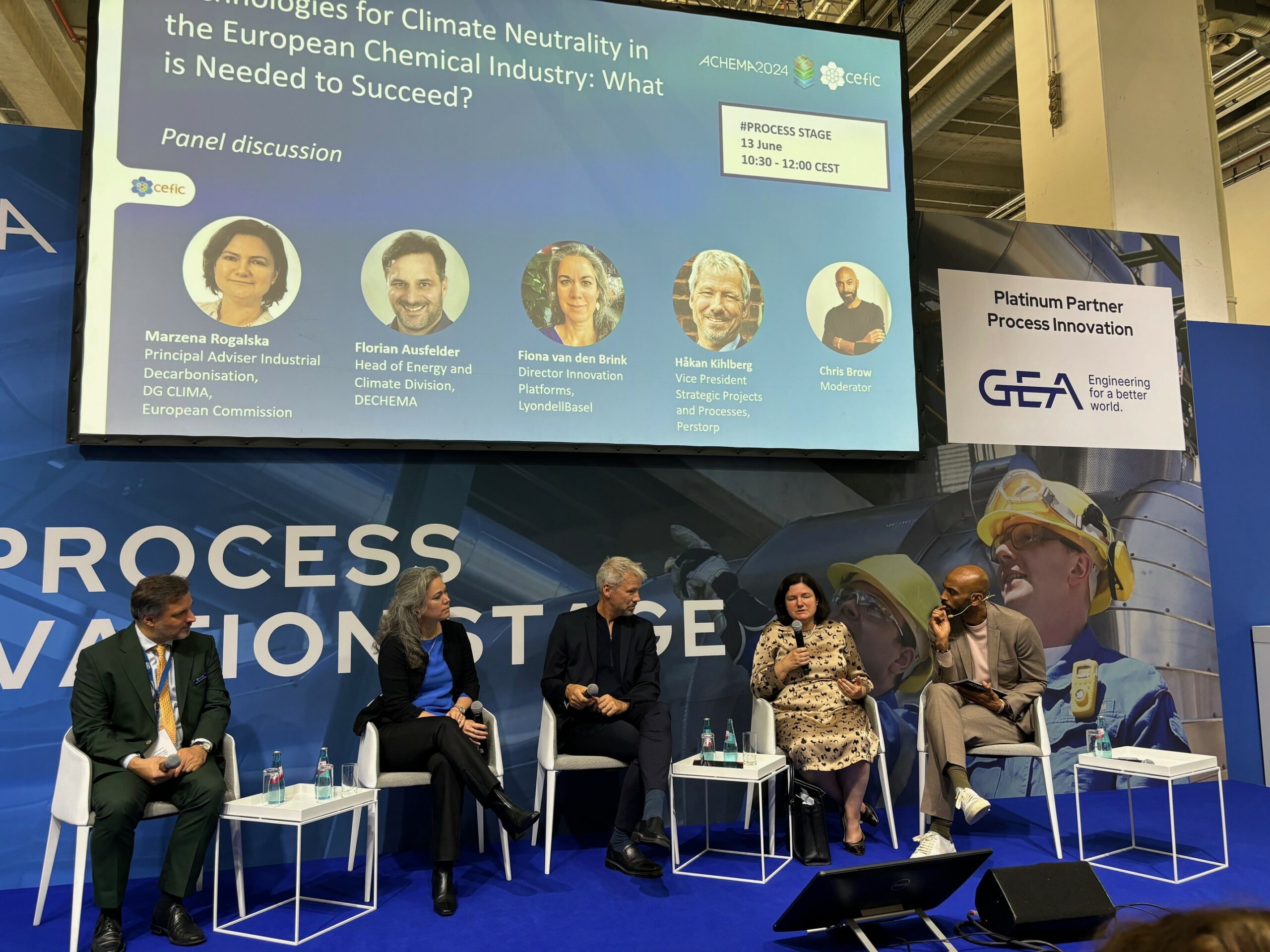
Series on Cefic at ACHEMA 2024
A multifaceted approach involving innovation, collaboration, supportive policies, and market incentives to boost circularity and the integration of clean energy is crucial to speed up the chemical industry’s transition to climate neutrality by 2050.
The chemical industry’s double twin transition, which includes the transition to a circular economy and achieving climate neutrality, must be accelerated. Despite significant challenges, the industry has a tremendous capacity for innovation and finding new solutions. However, enabling factors must be put into place, as agreed by speakers during Cefic’s ACHEMA 2024 Process Innovation Stage sessions, which focused on climate neutrality, chemical recycling, and sustainable carbon cycles.
Accelerating this transition and maintaining competitiveness in the chemical industry will require both technological advancements and a full ecosystem approach, including:
1. Boosting circularity
Traditional mechanical recycling methods and chemical recycling are complementary solutions. Chemical recycling technologies are indispensable in our journey towards a circular economy, as they can handle materials that cannot be recycled mechanically. Chemical recycling converts plastic waste back into secondary raw materials or recycled feedstocks, reducing the need for virgin fossil resources. Other sources of alternative feedstock come from sustainably sourced biomass and captured CO₂, contributing to sustainable carbon cycles.
2. Transition to climate neutrality
Achieving net-zero emissions by 2050 requires the integration of renewable and low carbon energy carriers combined with the utilisation of circular feedstocks (waste, CO2 and biomass) in the chemical industry. Therefore, substantial investments will be crucial to deploy a combination of these innovative process technologies and required infrastructure. Effective risk-sharing measures like the European Innovation Fund are vital for supporting projects aimed at reducing greenhouse gas emissions in the chemical sector. A supportive policy framework and the appropriate infrastructure, for instance, electricity, are essential to facilitate the deployment of these innovations in Europe.
3. Policy framework and market incentives
Throughout its transition, the European chemical industry must maintain its competitiveness. Products from innovative processes contributing to circularity and climate neutrality often come with a higher price than the same products from highly optimised conventional processes and related infrastructures. Supportive policies are essential to create a market for these products, as well as to facilitate cost competitive access to alternative feedstock and renewable or low carbon energy. For instance, setting specific targets for recycled content in product regulations and providing market incentives will support investment in chemical recycling technologies and help achieve widespread market acceptance for circular products with recycled content.
With the right market incentives, an enabling regulatory frameworkt, and collaborative efforts, the chemical industry is well-poised to progress in its double twin transition.
About Cefic’s participation at ACHEMA
Cefic held three Process Innovation sessions at ACHEMA 2024 which took place from June 10 to June 14 2024
Navigating Sustainable Carbon Cycles: The role of the chemical industry

Speakers
- Emmanuelle Maire, Head of Unit, Directorate-General for Environment, European Commission
- Annick Meerschman, Director Innovation, Cefic
- Egor Dementev, Senior Analyst – Plastics Recycling, ICIS
- Kevin Van Geem, Professor, Gent University
- Lars Holländer, Head of Sustainability & Circular Economy, UNITY Consulting and Innovation
The role of Chemical Recycling in Europe’s Circular Economy Transition

Speakers
- Emmanuelle Maire, Head of Unit, Directorate-General for Environment, European Commission
- Kevin Van Geem, Professor,Gent University
- Egor Dementev, Senior Analyst – Plastics Recycling, ICIS
- Gert Coun, Sr Manager Innovation Management Packaging, SABIC
- Annick Meerschman, Director Innovation, Cefic
- Catherine Lövenich, Project Manager, Covestro Deutschland AG
Technologies for climate neutrality in the European chemical industry: What is needed to succeed?

Speakers
- Marzena Rogalska, Principal Adviser Industrial Decarbonisation, DG CLIMA, European Commission
- Fiona van den Brink, Director Innovation Platforms, LyondellBasell
- Håkan Kihlberg, Vice President Strategic Projects and Processes, Perstorp
- Florian Ausfelder, Head of Energy & Climate Division, DECHEMA









